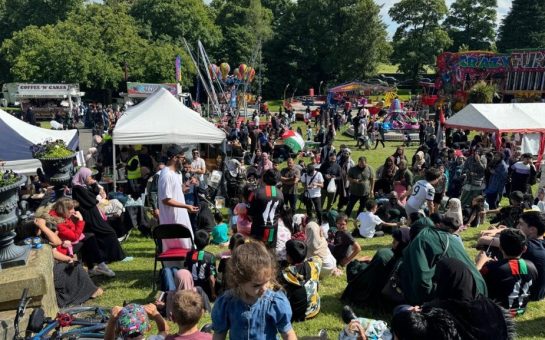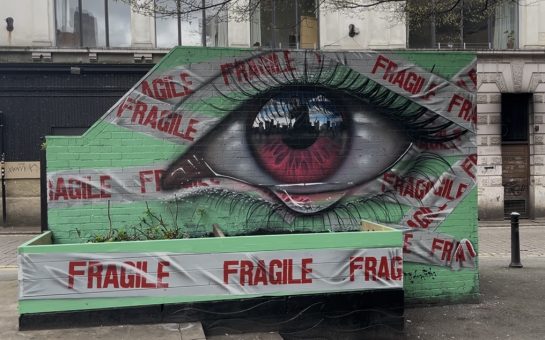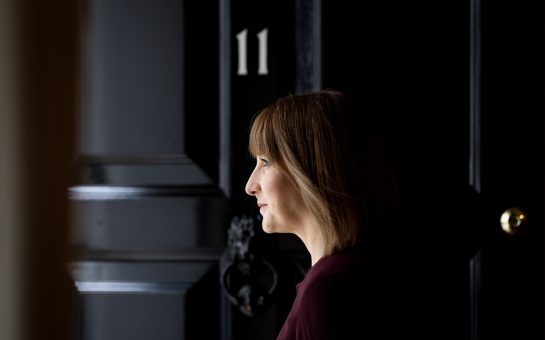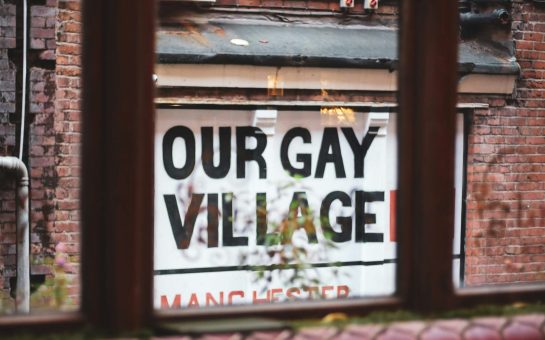After serving over a year as the first female Bishop to be ordained by the Church of England, Bishop of Stockport Libby Lane admits that even now, the levels and variety of interest in her never fail to surprise her.
“People have even begun asking to commission portraits of me!” she laughed.
“I’ve never had a portrait done before – I still don’t know how I feel about it!
“I am aware though that they are not doing this because of me as an individual, but because of the role I hold and the change I represent.”
LIBBY LANE. Class of 1987. 1st female bishop of @c_of_e. “I can do that, I can go there, I can be like her” #IWD2016 pic.twitter.com/sDAx0nKMgM
— Manchester High (@MHSG) March 8, 2016
At the time of her appointment, Bishop Lane was national news, seeing her become somewhat of a celebrity.
And she hopes her appointment has not only inspired women, but also other people in society who feel their options are limited.
“It is very important that there are public examples of women who are able to be points of aspiration and role models, demonstrating possibility to the wider community,” she said.
“But it’s not just about women.
“Those kinds of public images give all sorts of people that sense of ‘that’s been possible for her, and perhaps things are possible for me’.”
She admitted though, that this level of possibility did not seem achievable or realistic to her as a teenager.
“When I started training, I knew it might never be possible for me to even look after a church, let alone become a vicar or Bishop” said Bishop Libby, who trained for ministry at Cranmer Hall in Durham.
“From being a young adult I worked through that sense of understanding that this is what God is asking of me and I will do as much as I can, in the best way possible, to do what the church allows me to do.
“I had to become comfortable with knowing that it might never happen, but I was still prepared to do it.”
Stockport’s Bishop emphasised her role as ‘an agent of change from inside the church’ during a week in which the tenth female Bishop had been announced.
“Female Bishops have now become normal!” she said.
“We accept that the church is limited, it has failings, it gets things wrong and it takes us a long time to work things out.
Bishop Libby Lane (1986, Theology) is visiting the College today, to reflect on her first year in office. pic.twitter.com/5bKl4vTPfC
— St Peter’s Alumni (@SPC_Alumni) February 20, 2016
“But we have a long perspective and a view stretching into eternity.
“I do however understand that it feels a very long time and is difficult and painful for those who are caught in the midst of it.”
Although she remains dedicated to the church, Bishop Libby insisted this does not necessarily mean she agrees with everything that goes on.
“Sometimes it is important that disagreeing voices are heard,” she said.
“Being inside the church means I have a degree of loyalty to the organisation that I’m part of – I work for change from the inside.
“Sometimes that means my strongest words are said behind closed doors, in the places where they matter.
“It is really important that there are people more on the edges, being more public, being louder and rattling the bars to get things to change – that’s important too, but that hasn’t been my calling.”
Bishop Libby insisted that religion remains a crucial aspect of society and goes a long way to help tackling issues affecting the model world.
“I think religion and in particular the Christian faith is as important now as it has ever been to individuals, communities and societies,” she said.
“Churches are at the forefront of work with food banks and refugees – our actions weigh far more heavily than our words.
“Sometimes churches are the only places in communities that are providing some provisions for the more vulnerable in our communities because statutory and political provisions are shifting so much.
“The church is really engaged in places where people are on the edge; chaplaincies in prisons, in hospitals and in the armed forces.
“I think the church is one of if not the only institution that is still present in every community, regardless of its economic make-up, or its geography or political alliance.”
She also believes that religious groups can help put right the wrongs of some of their fellow groups.
#OTD 1 year ago, the first female #churchofengland Bishop, Libby Lane, was ordained: https://t.co/0JPtiey5So pic.twitter.com/x7DdYLjLdr
— VisionTV (@VisionTV) January 26, 2016
“It would be naive and blinkered to say that faith communities are not some of the people who actually perpetuate and continue division and conflict,” said Bishop Libby.
“It’s really easy and natural to look at the world and think, how can this possibly be put right – how can we possible address the scale and awfulness of the atrocities we are dealing with.
“I think faith communities are one of those agents that can perhaps demonstrate that it is possible to work together and be reconciled.
“Those glimpses of hope are really important.”
The Bishop, who is responsible for a wide region of Greater Manchester including Stockport, took the time to thank the town’s people for the warm reception they have given her over the past 12 months.
“The borough and people of Stockport have been wonderful in the past year – I feel really proud to be named for the town,” she said.
“It’s been wonderful the way that the local authority, the mayor, councillors and local communities and organisations have taken me to heart – they are all really proud of having the first woman bishop.”
Image courtesy of Mark Waugh, via Bishop Libby Lane, with thanks



